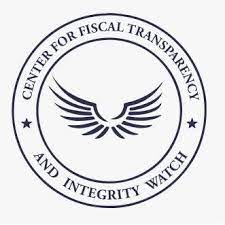Recently, the Center for Fiscal Transparency and Integrity Watch (CeFTIW) launched the Transparency and Integrity Index (TII) Methodology Handbook. The TII represents the Center’s response to systemic corruption in the public sector which thrives largely on secrecy and unwillingness to transparently publicize government activities through official websites and portals.
Through the TII, the Center advocates for transparency by insisting that Ministries, Department and MDAs comply with national laws and international conventions that promotes open governance.
Contrary to the Center’s continuous advocacy for the principles of transparency and accountability to be entrenched in the nation’s public service, it is disturbing to learn, in a report published by Daily Trust, that the federal government’s open treasury portal has failed to comply with established norm, with substantial financial records purportedly missing, including those of the Presidency, Army, Navy and several MDAs.
According to the exclusive report by the media organization, the portal which was down for several days was restored with records missing, “including those of the Office of the Accountant General of the Federation (OAGF) which oversees the portal.”
Daily financial statements of the federal government, MDAs for three successive years, as well as financial records on “monthly budget performance” of several MDAs alongside annual general purpose financial statements were also said to be conspicuously missing on the portal.
This is a sharp violation of the President’s mandate and intention to ensure transparency in government spending when he inaugurated the portal in December, 2019.
This, also coming after the Auditor General of the Federation, Adolphus Aghughu, had severally raised concerns over discrepancies in the financial statements of MDAs shows the level of noncompliance and disregard for extant laws by government’s own agencies.
The report referenced Aghughu to have raised the alarm in August 2021 that “MDAs failed to account for a total sum of N4.97trn in 2019 after an audit of their financial statements. Also, in December 2021, the auditor general queried the Federal Ministry of Agriculture for spending N3.809bn on the suspended rural grazing area scheme without a presidential approval or National Assembly appropriation.”
This disregard by government MDAs and even the Presidency of extant law has continued unmitigated largely because there has not been any known punishment for failure to comply, and when laws are continuously flaunted, they became mere counsel, and non-binding.
By President Muhammadu Buhari’s directive which follows the inauguration of the treasury portal in December, 2019, it is deemed a statutory requirement for MDAs and public offices to publicly publish daily treasury summary statements of their financial records above N5m, and monthly budget performance reports, including their functions and economic activities, within seven days to the end of the month.
MDAs failure to comply with this statutory directive also contravenes the provision of the Freedom of Information Act (FOIA); which should not be swept under the carpet.
Section 9 (1-2) of the Act defines the statutory obligations of government institutions as follows:
1- Every government or public institution shall ensure that it keeps every information or record about the institution’s operations, personnel, activities and other relevant or related information or records.
2 -Every government or public institution shall ensure the proper organization and maintenance of all information or record in its custody, in a manner that facilitates public access to such information or record under this Act.
Section 10 of the Act prescribes punishment as follows: It is a criminal offence punishable on conviction by the Court with a minimum of 1 year imprisonment for any officer or head of any government or public institution to which this Act applies to willfully destroy any records kept in his custody or attempt to doctor or otherwise alter same before they are released to any person, entity or community applying for it.
The journey to a transparent public sector begins with accountability; when government agencies and officials flaunt laws, and there are no consequences for such violations, then we can’t expect a society that thrives on sound democratic principles and the rule of law.
The culture of impunity, where public servants deliberately contravene laws and institutional frameworks for selfish reasons, and are not held accountable for such actions would continue fuel public sector corruption. While it’s largely believed that cases of ground corruption are perpetrated by politicians, corruption in government is only made possible when public servants acts with impunity and fail to comply with laid down processes.
It is important to reiterate that laws do not just implement themselves, but require the people who make up the system to function effectively. To this extent, the judiciary and those whose responsibility it is to enforce, and maintain law and order must wake up to their responsibility if corruption and impunity must be stamped out of the system.
In the instant case, civil societies and media must join hands in advocating and calling for prosecution of public offices and public servants alike who by actions, have normalized willful disregard for extant laws; while investigation should be immediately opened to unravel the mystery behind the missing information on the portal, and culprit punished in accordance with the law.
Victor Agi
Public Affairs

